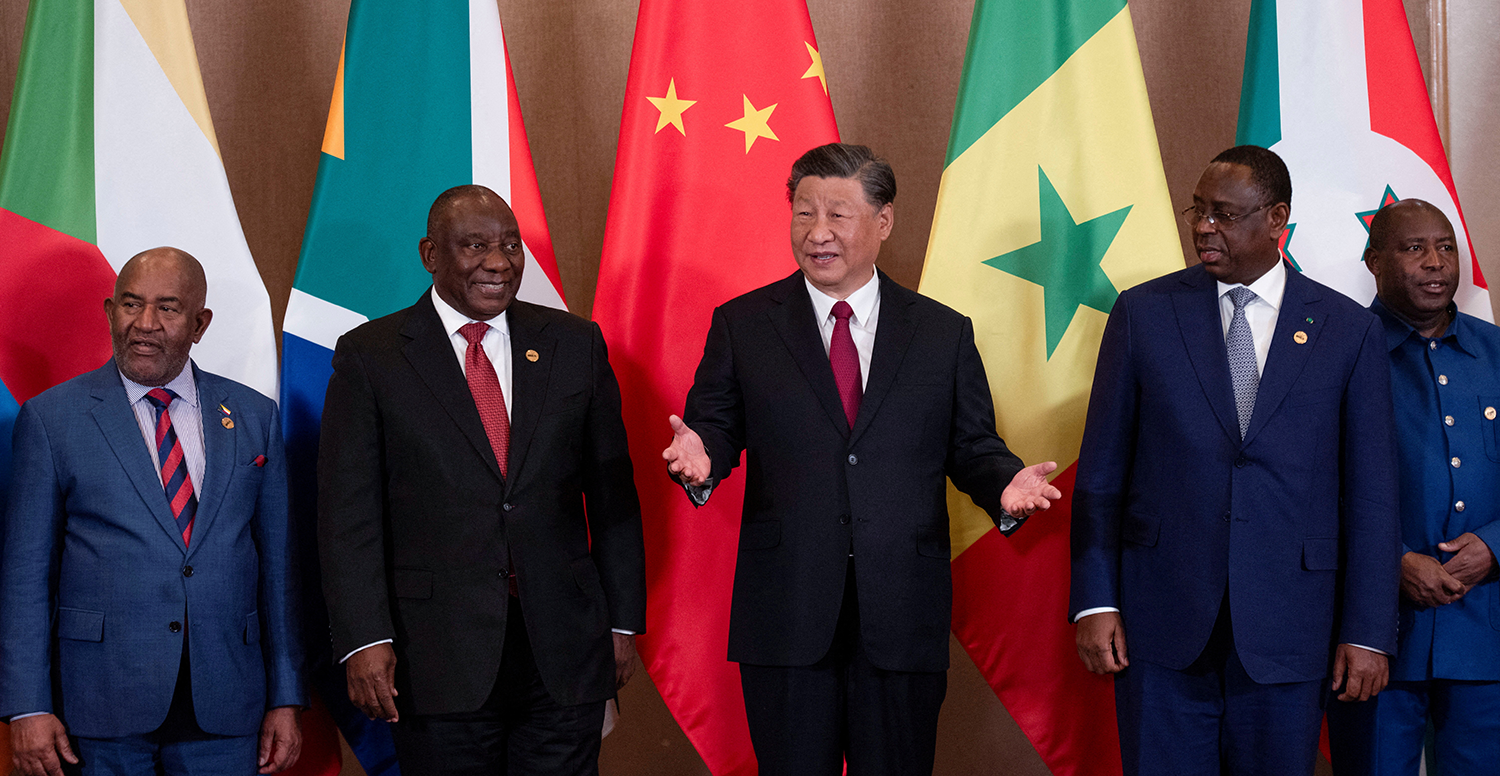STAIR is accepting submissions to the following sections of its current issue, Issue 21.2 - International Development Is Dead - Long Live International Development:
General Section: manuscripts on topics in the fields of International Relations/Affairs, Political Science, Contemporary/International History, Area Studies, Development Studies, and related fields. Articles may take theoretical or policy-oriented approaches.
Book Review: reviews of books in International Affairs or related fields which have been published within the last three calendar years. Please find a suggested shortlist below.
Theme Section: manuscripts on the theme of International Development Is Dead - Long Live International Development as outlined in the following description.
International Development Is Dead - Long Live International Development


Has the liberal “development project” that structured industrialized liberal-democracies’ relations with low- and middle-income countries since decolonization come to an end? Or is its crisis better understood as a transformation – a realignment of powers, priorities, and partnerships that redefine international development’s normative foundations while repurposing its rules and institutions? Traditional donor countries are reducing aid commitments, shifting geopolitical goals are impacting financing decisions, and development assistance is increasingly viewed through the lens of short-term national interest rather than abstract multilateral commitments. The rise of populism and economic nationalism, as well as increasing isolationism in Western democracies, signal a potential break from decades of development orthodoxy. At the same time, new players - China, the Gulf states, and private foundations - are changing the landscape with alternative engagement models.
These structural shifts prompt an examination of why conventional donor countries are changing their development strategies, how traditional recipient countries respond, how multilateral institutions are evolving, the future of international cooperation, and the broader global consequences. What will relations between LMICs and industrialised countries look like in a world not structured by conventional development assistance?
Recognising the importance of this moment, this issue of STAIR invites contributions that explore our main question: What are the causes, effects, and future directions of the present crisis in international development?
We welcome submissions of papers (5,000 - 10,000 words) engaging with any of the following themes:
1 - Conceptual Contributions
The crisis of international development demands new frameworks to understand what is happening and why. How does the current moment compare to previous crises or paradigm shifts? What can historical analysis tell us about development's resilience or fragility? Was development assistance ever truly altruistic, or has it always functioned primarily as a tool of soft power and geopolitical influence? How have recipient countries navigated the gap between development's normative claims and its instrumental uses? Finally, beyond the donor-recipient framework, what other models exist for understanding North-South relations? How might concepts like restitution, reparations, or climate justice reframe what we currently call "development"?
2 - Roots of Change
Understanding why traditional development is in crisis requires examining multiple intersecting forces, including economic, political, ideological, and institutional dimensions. How have austerity politics, debt crises, and competing domestic priorities in donor countries shaped development budgets? What role do anti-immigrant sentiment, sovereignty discourse, and "aid begins at home" rhetoric play in eroding public support for development? To what extent has scepticism about aid effectiveness undermined political support for traditional development? How do debates about "aid dependency" and "failed states" contribute to donor fatigue?
3 - The Global South Response
Traditional recipient countries in the Global South have had to navigate new realities in an increasingly aid-scarce world. How are countries adapting to reduced development assistance, and how do countries with different levels of aid dependency respond? Are we witnessing increased South-South cooperation, regional integration efforts, or new forms of domestic resource mobilisation? Domestically, how are changes in the international development architecture affecting national development planning, social policy, and poverty reduction strategies? Globally, does the crisis in traditional development assistance create openings for Global South countries to assert greater voices in global governance? Are we seeing the emergence of counter-hegemonic development models that reject Western paradigms entirely?
4 - Multilateral Perspectives and the Changing Role of International Institutions
Multilateral development institutions that were foundational to the post-1945 international order are now at the core of the current crisis. What is the future of the World Bank, IMF, and regional development banks in an era of declining aid flows? To what extent have MDBs become arenas of great-power competition rather than neutral development actors? How are regional bodies like the African Union, ASEAN, the Caribbean Community (CARICOM), or the Organisation of Islamic Cooperation (OIC) developing their own approaches to development cooperation? What advantages or constraints do they face? Finally, how is the changing donor landscape affecting international and local NGOs? Are we seeing a crisis in civil society funding, or are new models emerging?
5 - Macro Effects: Implications for Global Challenges
The retrenchment of development assistance has real-world consequences for some of humanity's most pressing challenges. How are aid cuts and shifting development priorities affecting global poverty reduction efforts? How does this intersect with COVID-19's economic impacts and climate-related shocks? Development assistance has been critical for global health programs, from HIV/AIDS treatment to malaria control to vaccination campaigns. How are cuts to health aid affecting disease eradication efforts? What are the implications for pandemic preparedness and global health security? With education often among the first casualties of aid cuts, what are the long-term implications for human capital development in low-income countries? How might this affect future economic trajectories and inequality? With shrinking budgets, are gender-focused programs and efforts promoting reproductive rights dropping off the agenda, and what are the implications of this? Finally, how are the tenuous links between development and conflict mitigation processes leading to growing fragility as governments scale back support?
6 - Partnerships & the Way Forward
As traditional development assistance declines, what alternatives are emerging? How does China's approach to development cooperation constrain or open up developing countries' options? How are Gulf states positioning themselves as prominent development actors? What motivates their engagement, and how does it differ from traditional Western approaches? Beyond major emerging donors, how are developing countries creating horizontal partnerships? Finally, if the traditional development model is failing, what alternatives are worth pursuing? How might new frameworks create more equitable international relations?
-
Bhattacharya, Debapriya; Khan, Towfiqul; Altaf, Najeeba, eds. 2025. Effective Development Co-operation. New Evidence from the Global South. London: Routledge.
Haaland, Hanne; Kinsbergen, Sara; Schulpen, Lau; Wallevik, Hege. 2024. The Rise of Small-Scale Development Organizations. The Emergence, Positioning and Role of Citizen Aid Actors. London: Routledge.
Jakupec, Viktor; Kelly, Max; McKay, John. 2025. Foreign Aid in a World in Crisis. Shifting Geopolitics in the Neoliberal Era. London: Routledge.
Nawabi, Jawied. 2025. Why States Matter in Economic Development. The Socioeconomic Origins of Strong Institutions. London: Routledge.
Schuster-Wallace, Corinne; Bharadwaj, Lalita, eds. 2025. The Intersection of Global Health and Sustainable Development : An International Perspective. Northampton: Edward Elgar Publishing.
Shah, Mohammad. 2025. The Failure of Public Finance Management in Afghanistan. Lessons for Other Conflict-Affected States. London: Routledge.
Skidmore, David. 2025. China, The West and the Global Development Finance Regime. Northampton: Edward Elgar Publishing.
Sundberg, Molly. 2026. Monetizing and Localizing Foreign Aid: Evolving Paths and the Professionals Treading Them. London: Routledge.
Ziai, Aram. 2025. Development Discourse and Global History: From Colonialism to the Sustainable Development Goals. London: Routledge.
